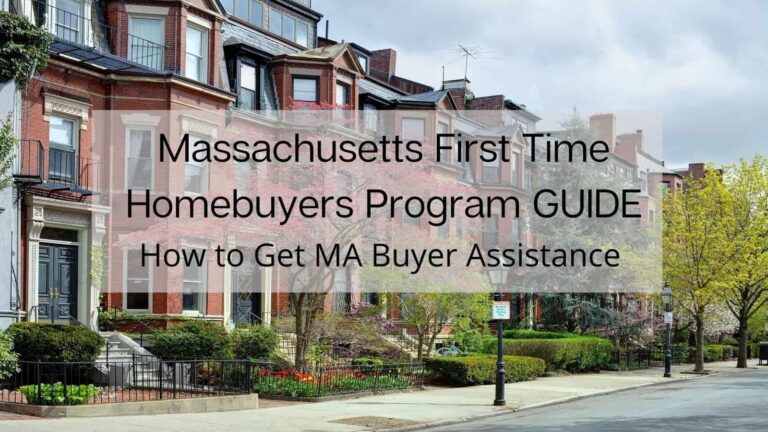First-time homebuyers in Massachusetts are encountering an increasingly tough market as rising prices, limited inventory, and tightening lending standards compound the challenges of entering the housing market. Despite historically low mortgage rates earlier this year, affordability remains out of reach for many, sparking concerns about long-term impacts on homeownership and community stability across the state.
Table of Contents
- Challenges Driving Up Costs for Early Buyers in Massachusetts
- Limited Inventory and Rising Demand Strain the Market
- Impact of Regulatory Changes on Housing Accessibility
- Strategies and Resources to Support First-Time Homebuyers
- In Retrospect
Challenges Driving Up Costs for Early Buyers in Massachusetts
Massachusetts first-time homebuyers are facing mounting financial pressures as soaring property prices collide with limited housing inventory. The state’s competitive market dynamics have led to aggressive bidding wars, often pushing sale prices well beyond initial appraisals.In addition, rising construction costs and workforce shortages contribute to a sluggish supply of new homes, further tightening availability and elevating prices. Many early buyers find themselves contending with increased down payment requirements and higher interest rates, compounding affordability challenges.
Compounding factors impacting costs include:
- Inflation-driven material and labor price hikes
- Zoning restrictions limiting new developments
- Growing demand in urban and suburban areas
- Stricter mortgage lending standards post-pandemic
These pressures collectively widen the gap between what prospective homeowners can afford and market realities, particularly affecting younger buyers with moderate incomes. Efforts to expand affordable housing initiatives are underway, but immediate relief remains elusive for many early buyers navigating Massachusetts’s challenging real estate landscape.
Limited Inventory and Rising Demand Strain the Market
Massachusetts’ real estate market is grappling with an acute shortage of homes available for purchase, intensifying competition among buyers, especially those entering the market for the first time. As the population grows and demand outpaces supply, prospective homeowners are encountering fewer choices, often facing bidding wars that drive prices beyond initial forecasts. This constriction is particularly pronounced in popular areas such as Boston and the western Berkshires, where limited new construction coupled with strong buyer interest creates a challenging surroundings.
Key factors fueling this imbalance include:
- Low inventory levels due to delayed new developments and homeowners holding onto properties longer.
- Rising interest from investors and out-of-state buyers, intensifying competition.
- Escalating property values that place first-time buyers at a distinct disadvantage.
Without a substantial increase in housing stock, the struggle for affordable, accessible homes is highly likely to continue, placing meaningful pressure on new entrants striving to establish roots in the Bay State.
Impact of Regulatory Changes on Housing Accessibility
Recent regulatory shifts in Massachusetts have intensified challenges for first-time homebuyers, significantly affecting housing affordability and accessibility. New zoning laws and stricter building codes, designed to enforce safety and environmental standards, inadvertently extend construction timelines and inflate advancement costs. These changes have led to a ripple effect where developers respond by increasing home prices to offset added expenses, pushing market entry points increasingly beyond the reach of many prospective buyers.
Moreover,compliance requirements from various regulatory agencies have introduced complex bureaucratic hurdles. First-time buyers now face:
- Longer approval processes slowing down property transactions,
- Heightened documentation demands increasing upfront costs, and
- Reduced inventory as smaller developers struggle to meet new standards.
These compounded factors underscore a growing tension between necessary regulatory oversight and the urgent need to maintain accessible pathways for homeownership in the state.
Strategies and Resources to Support First-Time Homebuyers
As the Massachusetts housing market tightens,various programs have emerged to ease the burden on those entering homeownership for the first time. State-sponsored initiatives such as the MassHousing loans provide competitive interest rates and down payment assistance,making homeownership more attainable. Additionally, nonprofit organizations offer educational workshops that equip buyers with essential knowledge about financing options, budgeting, and navigating the complex purchasing process. These resources are crucial as spiraling prices and rising interest rates continue to challenge affordability.
Beyond financial aid, community-based solutions also play a vital role. First-time buyers are encouraged to explore options like:
- Homebuyer education courses that increase readiness and confidence in making informed decisions.
- Local housing counseling services that provide personalized guidance tailored to individual circumstances.
- Down payment gift programs available through family or community organizations, easing upfront costs.
Combined, these strategies create a support system that addresses both the financial and practical hurdles faced by many Massachusetts residents striving to purchase their first home.
In Retrospect
As Massachusetts continues to grapple with soaring home prices and limited inventory, first-time homebuyers find themselves navigating an increasingly challenging market. With rising interest rates and affordability constraints adding pressure, the path to homeownership is becoming steeper for many.Policymakers and housing advocates alike face mounting urgency to address these barriers, as the demand for accessible, affordable housing shows no signs of easing. For prospective buyers, staying informed and prepared remains crucial amid these evolving conditions.

